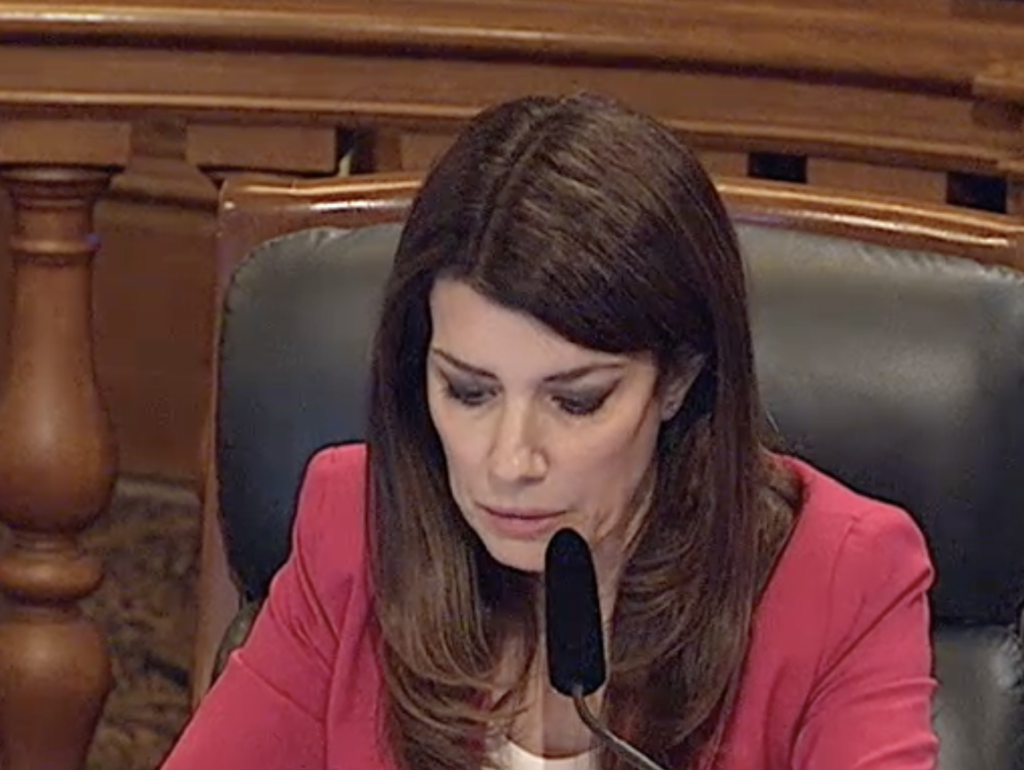>>We need you! Become a 48hills member today so we can continue our incredible local news + culture coverage. Just $20 a month helps sustain us. Join us here.
I just watched the Board of Supes debate on the repeal of the Costa-Hawkins Act, and I’m shaking my head.
It was bizarre, watching two supes make claims that are so far beyond reality that you wonder what universe we are living in.
Here’s the issue:
For many years, one of the most important political debates in San Francisco and other tenant-heavy cities involved expanding rent controls to vacant apartments.

The idea is pretty clear: If you let landlords raise the rent to market rates when a tenant moves out, then those landlords have every incentive to find a way to get rid of long-term renters.
Many of the evictions, legal and dubious, that have plagued this city have their roots in that problem.
In the 1980s, Berkeley, Santa Monica, and West Hollywood passed laws that limited rent hikes on all apartments, even after a tenant leaves. Landlords would get a base rent, and that would be the rent for the foreseeable future.
It did wonders for housing affordability in Berkeley. The real-estate industry hated it.
Over and over, San Francisco tenants tried to get vacancy control. The Board of Supes actually approved a measure by Sup. Harry Britt in 1984, but Mayor Dianne Feinstein vetoed it. Art Agnos ran for mayor in 1987 specifically on a platform of vacancy control, but couldn’t get six supes to support the concept.
The landlords tried repeatedly to overturn vacancy control in the courts. In 1985, the issue made it all the way to the US Supreme Court, which ruled in 1986 that rent controls on vacant apartments were not a violation of the Constitution.
So the landlords went to the state Legislature, where Big Real Estate has enormous clout. State Assemblymember Jim Costa agreed to carry a bill that would pre-empt local rent control and ban controls on vacant apartments (and any units built after 1979).
Every year, he introduced the bill, and it cleared the state Assembly. Willie Brown was the (powerful) speaker, who controlled the agenda; he could have killed it, but he never did.
Then it went to the state Senate, where the president pro tem, David Roberti, who represented West Hollywood, made sure it never got to the floor.
Then came term limits, Roberti was gone, and in 1995 the bill passed.
Since then, cities and counties have lost the tool of effective rent control
There’s a measure on the November ballot that would change the situation. It’s called the Justice for Renters Act. You can read the entire text here.
It would, very simply, repeal Costa-Hawkins. It states:
The state may not limit the right of any city, county, or city and county to maintain, enact or expand residential rent control.
That’s it. That’s the entire new language, all 22 words.
Sup. Dean Preston asked the board to endorse the measure. These things are usually pretty pro-forma, and he said he had discussed the concept with his colleagues and other than Sup. Joel Engardio, received no negative feedback.
But at the meeting, Sup. Catherine Stefani launched a very strange attack on the bill, saying that it was a Republican plot to stop new housing in California. She insisted that she supports rent control, but said that this would “freeze the creation of new housing” in California.
She said that a Republican member of the Huntington Beach City Council supports it, and that state Sen. Toni Adkins and Assemblymember Buffy Wicks oppose it.
Adkins and Wicks are both major Yimbys with big support from the real-estate industry.
Sup. Aaron Peskin held up a copy of the ballot measure, and said: “I am looking at all four pages, and I see one sentence that says the state may not limit the right of any city or city and county to expand rent control.”
That’s it.
Sup. Dean Preston, who proposed that the supes endorse the measure, noted that the measure would simply restore state law to what it was before 1995, when local government could decide how to regulate rents. It would impose no new statewide mandates. It would just return the debate to local government.
“We would have tools to make housing more affordable,” he said. “Every tenant group in the state, and every tenant group in San Francisco, supports this.”
Sup. Matt Dorsey chimed in with Stefani, saying that the measure might allow conservative cities to pass very strict rent control laws that would, in theory, discourage new housing.
So in theory, a Republican city could pass a very strict rent control law on new housing that would mean nobody would build new affordable rental housing in that city.
As if Huntington Beach is going to pass strict rent control—and as if any new rental housing there would be remotely affordable anyway.
Rent control on new units, as Sup, Myrna Melgar noted, starts at market rate. It’s only over the long term that those controls might make the place more affordable.
By then, the developer and the landlord have already made a reasonable return on their investment—but not a massive speculative profit. Which is what regulation of rental housing in all about.
I guess what we are seeing her is a preview of the landlord attack on the repeal measure—that is somehow might let Nimby cities block new housing by passing rent control laws.
We have heard this for decades; developers used to say that they didn’t want to build housing in San Francisco because of rent control—even when new housing was exempt from rent control.
Stefani is the leading candidate to take Phil Ting’s seat in the state Assembly. We got a clear message this week why the only way to repeal Costa-Hawkins is by the voters.
The measure was continued a week. So we will see this discussion again.





